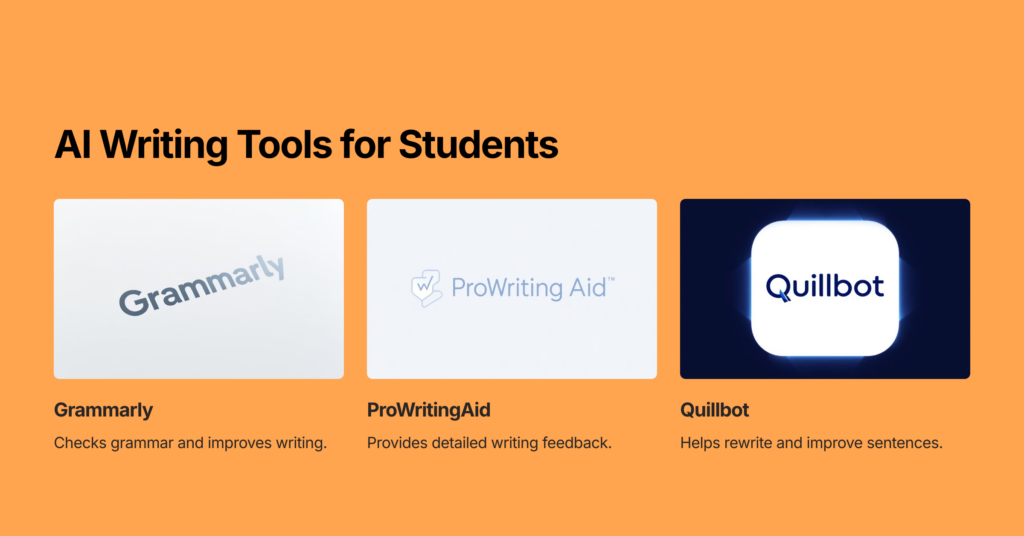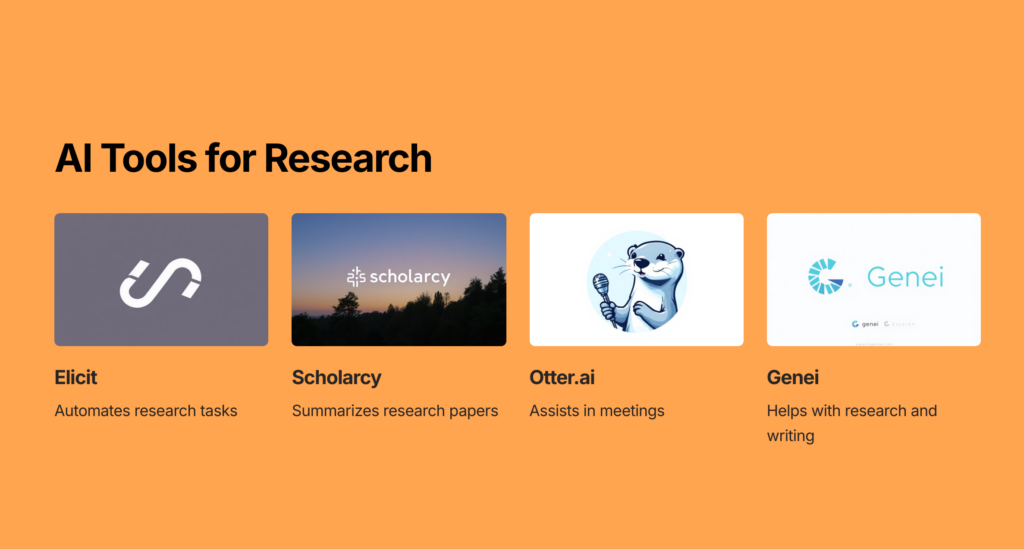

Quick Summary
As Artificial Intelligence continues to reshape the educational landscape, students are presented with powerful new AI tools to streamline their learning, enhance productivity, and personalize their study journeys. While Chegg’s comprehensive blog on the Best AI tools for students covers many applications, several high-impact AI tools for education and dimensions remain unexplored.
From innovative LMS integrations to gamification and ethical concerns, this guide expands on the original content to offer an even more robust and future-forward resource for students aiming to make the most of AI.

AI, in its full form, is Artificial Intelligence. AI is the term used for a computer program’s ability to carry out tasks that may be construed as intelligent if performed by a human being. It can tackle highly complex issues and make decisions, converse on given topics, or carry out different functions independently.
AI tools refer to software applications or platforms that utilize artificial intelligence methods, including machine learning, natural language processing, computer vision, and deep learning. These tools are designed to automate various tasks, analyze data effectively, and improve the decision-making process.
AI tools are increasingly using game mechanics to improve student motivation and retention.
Examples:
Benefits of Gamification with AI:
AI tools for students encompass a range of software and applications that leverage artificial intelligence to support, improve, or simplify the education experience. In contrast to traditional digital resources, AI-powered tools are designed to adapt, forecast, and tailor learning experiences to meet the unique needs and behaviors of each student.
| AI Tool Name | Use For | Free Version Details |
|---|---|---|
| ChatGPT | AI Writing | Unlimited |
| Grammarly | Grammar and Editing | 300 docs or 150k words/month |
| Quillbot | Paraphrasing | 125 words at a time |
| Google Gemini | Research | Unlimited |
| ChatPDF | Research | 3 PDFs and 50 Questions/day |
| Natural Readers | Text to Speech | 4k characters per day |
| Mubert | Text to Music | 25 tracks/month |
| Doctrina AI | Learning | Access Notes and Quizzes |
| Tutor AI | Learning | 3 queries/month |
| AskCodi | Coding | 50 credits/month |
| Hocoos | Website Building | Limited customization |
| Kickresume | Resume Building | No downloads |
| Microsoft Copilot Designer | AI Art Generation | 100 images/day |
| Replika | Personal Assistance | Unlimited chat |
| ElevenLabs | AI Voice Generation | 10k characters/month |
| BypassGPT | Humanizing AI Content | 125 words at a time |
| Otter AI | Meeting Transcription and Summary | 300 transcription mins/month |
| PDF AI | Chat with PDF | 500 monthly questions |
| Gamma AI | AI Presentation | 400 AI credits |
Notion is an all-in-one digital workspace that empowers students to organize their class notes, manage tasks, collaborate on group projects, and track their study progress. Its flexibility makes it a powerful productivity hub.
Key Features:
Why Students Love It: Notion’s customizable layout and integrated features help students streamline their academic workload, maintain focus, and plan assignments effectively.
Pricing: Free for personal use; educational discounts available.
Mendeley is a reference management tool ideal for research-intensive coursework. It helps students collect, organize, cite, and share research materials efficiently.
Key Features:
Why Students Love It: Mendeley simplifies academic research by ensuring proper citation and allowing students to manage vast amounts of information with ease.
Pricing: Free with premium features available.
Gradescope, powered by AI, allows students to submit their assignments digitally and receive fast, detailed feedback. It is especially popular for STEM courses.
Key Features:
Why Students Love It: It provides transparency in grading and helps students understand where they need improvement.
Pricing: Typically institution-provided; students can access for free if their school is enrolled.
Copyscape is a robust plagiarism checker that students can use to ensure the originality of their work before submission.
Key Features:
Why Students Love It: Copyscape helps students uphold academic integrity by identifying accidental plagiarism in assignments.
Pricing: Paid tool; costs vary based on word count.
DALL·E by OpenAI is an AI tool that turns textual descriptions into high-quality images. It is ideal for creative students in media, design, and architecture.
Key Features:
Why Students Love It: DALL·E can transform abstract ideas into engaging visuals for class projects, posters, and design work.
Pricing: Limited free credits, with pay-as-you-go options.
AI-powered LMS platforms integrate automation, adaptive learning, and predictive analytics to personalize the educational experience for students.
Key Benefits:
Popular Platforms Using AI in LMS:
This evolving technology ensures every learner receives individualized support, making AI tools for education more inclusive and effective.

AI has the potential to significantly reshape a student’s AI tools for education path, but the secret to success lies in how well it is utilized. Here are some strategies for students to maximize the benefits of AI:
AI should enhance, not replace, human educators. The most effective learning happens when AI is used to supplement teaching efforts.
Collaborative Models:
By combining strengths of both, students receive holistic support that fosters deep learning and personal growth.
While AI brings immense benefits, students must be aware of its limitations and risks.
Ethical Considerations:
Best Practices:
Choosing an appropriate AI tool for learning involves more than mere aesthetics; it should fit the very needs of your institution. Here are the essential considerations:
Proper evaluation of these criteria may help select an AI tool for learning that promotes learning and integrates well with the institution’s framework.
| Tool Name | Best For | Free Plan | Platform Support | Privacy Rating |
|---|---|---|---|---|
| ChatGPT | Writing & tutoring | Yes | Web, Mobile | High |
| Grammarly | Grammar check | Yes | Chrome, Word, Docs | High |
| Quillbot | Paraphrasing | Yes | Web, Chrome extension | Moderate |
| Mendeley | Reference management | Yes | Desktop, Web | High |
| Notion | Organization | Yes | Web, Mobile, Desktop | High |
| Copyscape | Plagiarism check | No | Web | High |
| Otter.ai | Note transcription | Yes | Web, Mobile | Moderate |
| DALL·E | Visual creation | Yes | Web | High |

AI writing tools are a fundamental asset for students. They can provide invaluable assistance in improving grammar, tone, style, and the overall quality of essays, reports, summaries, and comprehensions. We will now explore some of the best AI writing tools available.
Grammarly is undoubtedly one of the most popular AI writing tools available. It offers comprehensive grammar and spell-checking capabilities, advanced writing suggestions, and even plagiarism detection. Grammarly’s feedback helps students improve their writing skills by highlighting mistakes and providing suggestions for improvement.
Thus, they can produce error-free content in general AI tools for students. It also includes a tone detector and allows users to set goals for refined work accordingly!
Grammarly helps students avoid common writing mistakes, making their essays and reports more polished. Thus, it is one of the best AI tools for students freely available with many great features to use.
Pricing: Both free as well as premium versions are available starting at INR 984/-
ProWritingAid is another robust AI-powered writing assistant. It provides detailed reports on writing style, grammar, and readability.
ProWritingAid’s comprehensive feedback helps students develop their writing skills over time. It is ideal for those who want to improve their writing skills.
Pricing: Though it has a free version, the premium version comes with additional features starting at INR 550.
Quillbot is an AI writing tool widely known for its paraphrasing capabilities. It helps students to rephrase sentences, thereby improving the coherence and fluency of their writing.
Quillbot is excellent for helping students understand complex texts and rephrase information in their own words. It is particularly useful for exam preparations and assignments.
Pricing: It comes with a free as well as paid version available. The premium version starts at USD 4.17 (348.60 INR).
Paperguide is an AI powered research assistant that offers a set of tools for all your research needs.
Dedicated Research Assistant
Literature Review
AI writer for any kind of writing and brainstorming
ChatwithPDF
Citations
seamless collaboration
Paperguide operates on an easy, intuitive interface that offers overall research assistance. It can fetch relevant papers, summarise them, extract key points and write too.
Pricing: The free version is generously accommodating and its stater plan is $9 only.

Research and note-taking are critical components of the academic process. AI tools can simplify these tasks by summarizing information, identifying relevant sources, and generating citations.

Elicit is an AI research assistant designed to help students find relevant academic papers and summarize key findings. It uses natural language processing to understand research queries and provide concise results.
Elicit facilitates the research process, making it easier for students to gather and synthesise information for their projects and papers.
Pricing: The basic plan is free and covers 5000 credits one time. The ‘Plus’ plan starts at $10 per month (835.88 INR). A custom pricing option is also available.
Scholarly is an AI-powered summarization tool that extracts key points from academic papers, reports, and articles. It generates summary flashcards that highlight important information.
Scholarcy’s ability to distil complex texts into manageable summaries is a lifesaver during exam preparation and research projects.
Pricing: The article summariser comes for free, and the Scholarcy Plus plan starts at $4.99 per month (417.569 INR).
Otter.ai is an advanced AI note-taking tool that transcribes lectures and meetings in real time. AI tools for students: It creates searchable, shareable notes with highlights, summaries, and key phrases.
Otter.ai helps students capture every detail of their lectures. Thus, it allows them to review and study more effectively later.
Pricing: The basic plan is free for individuals just getting started. Another plan is for small teams and organizations, starting at $30 per user per month (2,507.63 INR per user per month).
Genei is an AI-driven research assistant that helps students analyze and summarise lengthy documents. It offers features such as automatic summarization, keyword extraction, and note organization.
Genei simplifies the research process. It helps students quickly understand and organise information from multiple sources.
Pricing: There are two types of plans – professional and academic. The basic academic plan starts at £4.99 per month (531.30 INR), and the pro plan starts at £19.99 per month (2,128.56 INR).
Perplexity AI is a conversational search engine and research assistant that directly answers questions with concise summaries and cited sources. It stands out by combining the comprehensiveness of a search engine with the clarity of an AI, making it one of the most powerful AI tools for students conducting initial research or exploring new topics.
Perplexity AI eliminates the need to sift through dozens of web pages to find a starting point. It provides well-sourced, summarized answers instantly, making it an invaluable AI tool for learning about complex subjects quickly and efficiently. It’s particularly useful for crafting thesis statements and gathering preliminary sources for papers.
Pricing: Free version with a Pro plan available for enhanced capabilities.
Managing time and staying organised are essential skills for academic success. AI tools can assist students in streamlining their tasks, managing schedules, and improving focus.
TimeHero is an AI-powered task management tool that helps students plan and prioritize their tasks. It automatically schedules tasks based on deadlines and availability. By efficient task management, TimeHero is proving as one of the best AI tools for college students.
Time Hero helps students manage their busy schedules, ensuring they meet deadlines without feeling overwhelmed.
Pricing: There are three types of pricing plans: basic, professional and premium plans.
Trevor AI is a personal assistant designed to optimize students’ schedules. It analyses tasks and deadlines and then suggests the best times to complete each task. AI tools for students: Trevor AI promotes better time management and reduces stress.
Trevor AI helps students make the most of their time, reducing the stress of juggling multiple responsibilities.
Pricing: The tool is available for free to use on mobile and desktop. Note that the pro plans are also available!
Focusmate is a virtual co-working platform that leverages AI to enhance productivity. It pairs students with accountability partners for timed work sessions.
Focusmate’s unique approach helps students stay on task and maintain high productivity levels, especially during intensive study sessions.
Pricing: There are three plans: free, plus, and business. The Plus plan starts at $6.99 (584.26 INR) per month, billed yearly.
In today’s digital age, students have access to a variety of free AI tools that can enhance their learning experience without breaking the bank. Among the best free options available, tools like ChatGPT provide invaluable writing assistance, helping students brainstorm ideas, draft essays, and refine their work.
Semantic Scholar is a free AI-powered research tool that helps students find relevant academic papers and articles. It offers advanced search capabilities and citation management features, making it easier for students to conduct thorough research.
Semantic Scholar provides access to a vast database of academic literature. Thus, it is an invaluable resource for research projects.
Pricing: It is available completely free for students.
Duolingo is a popular language-learning platform that uses AI to provide personalized lessons and practice exercises. It easily adapts to each student’s learning pace and style!
Duolingo makes language learning fun and accessible, helping students build proficiency in new languages.
Pricing: Duolingo is completely free for students. There is also a Super Duolingo plan and several other plans, the cost of which varies from country to country.
Wolfram Alpha is a computational knowledge engine. It provides answers to complex questions and further helps in performing calculations. It is useful for those studying in math, science, and engineering disciplines.
Wolfram Alpha helps students tackle challenging math and science problems. Further, it helps them by providing clear explanations and solutions.
Pricing: There are three categories of plans—for students, educators, and everyone. AI tools for students: After the basic plan, there are pro and pro premium plans for students starting at Rs. 149 per month and Rs. 239 per month, respectively.
SlidesGo is a free AI-powered tool for creating professional-quality presentations. It helps students to create visually appealing presentations.
SlidesGo helps students create stunning presentations easily. It is one of the best AI tools for engineering students. It is a great tool for project work and class presentations.
Pricing: While the free plan offers limited features, the premium plan offers unlimited features starting at Rs. 189 per month.
The evolving role of AI tools in education offers immense promise, from simplifying routine tasks to enabling immersive, personalized learning experiences. By expanding the scope of AI tools for students to include visual creativity, advanced research management, gamified learning, and ethics-focused practices, Chegg can provide a truly comprehensive guide that empowers students at every academic level. Embracing these tools thoughtfully and responsibly will not only enhance student outcomes but also prepare learners to thrive in a tech-driven future.
Read more:

There is no product named “Google AI Pro.” However, Google’s powerful AI, Gemini Advanced, is not free. Students can access the robust free version, Gemini, and other excellent free AI tools for learning like ChatGPT and Grammarly. Always check official educational programs for potential discounts on premium AI tools.
The top tools include ChatGPT for conversation, Grammarly for writing, Google Gemini for research, and Notion for organization. For creative tasks, DALL-E generates images, and for research, Perplexity AI provides cited answers. These best AI writing tools and utilities enhance productivity and learning, forming a comprehensive toolkit for students and professionals to streamline their workflows effectively.
ChatGPT is a top choice for its versatility in writing help, tutoring, and brainstorming. It’s a powerful, free AI tool for learning. For specialized tasks, Grammarly refines writing, while Quillbot assists with paraphrasing. The “best” tool depends on your specific academic needs, from research to time management, making it essential to explore various AI tools for students.
Mendeley
Zotero
Grammarly
Turnitin
EndNote
Google Scholar
ResearchGate
Sci-Hub
LaTeX (Overleaf)
RefWorks
The seven major types of AI are Reactive Machines, Limited Memory, Theory of Mind, Self-Aware AI, Artificial Narrow Intelligence (ANI), Artificial General Intelligence (AGI), and Artificial Superintelligence (ASI). For students, most AI tools for education, like chatbots and adaptive learning platforms, fall under ANI. These AI tools are designed for specific tasks, helping with research, writing, and personalized study plans, making them highly effective for academic use.
The 30% rule is a best practice guideline suggesting that AI should not contribute more than 30% of the original content in a final piece of work. For students using AI tools for students, this means the tool should assist your own 70% effort, ensuring originality and deep understanding. This rule helps prevent over-reliance, making an AI tool for learning a partner in the process, not a replacement for critical thinking.

Authored by, Mansi Rawat
Career Guidance Expert
Mansi crafts content that makes learning engaging and accessible. For her, writing is more than just a profession—it’s a way to transform complex ideas into meaningful, relatable stories. She has written extensively on topics such as education, online teaching tools, and productivity. Whether she’s reading, observing, or striking up a conversation while waiting in line, she’s constantly discovering new narratives hidden in everyday moments.
Editor's Recommendations
Chegg India does not ask for money to offer any opportunity with the company. We request you to be vigilant before sharing your personal and financial information with any third party. Beware of fraudulent activities claiming affiliation with our company and promising monetary rewards or benefits. Chegg India shall not be responsible for any losses resulting from such activities.
Chegg India does not ask for money to offer any opportunity with the company. We request you to be vigilant before sharing your personal and financial information with any third party. Beware of fraudulent activities claiming affiliation with our company and promising monetary rewards or benefits. Chegg India shall not be responsible for any losses resulting from such activities.